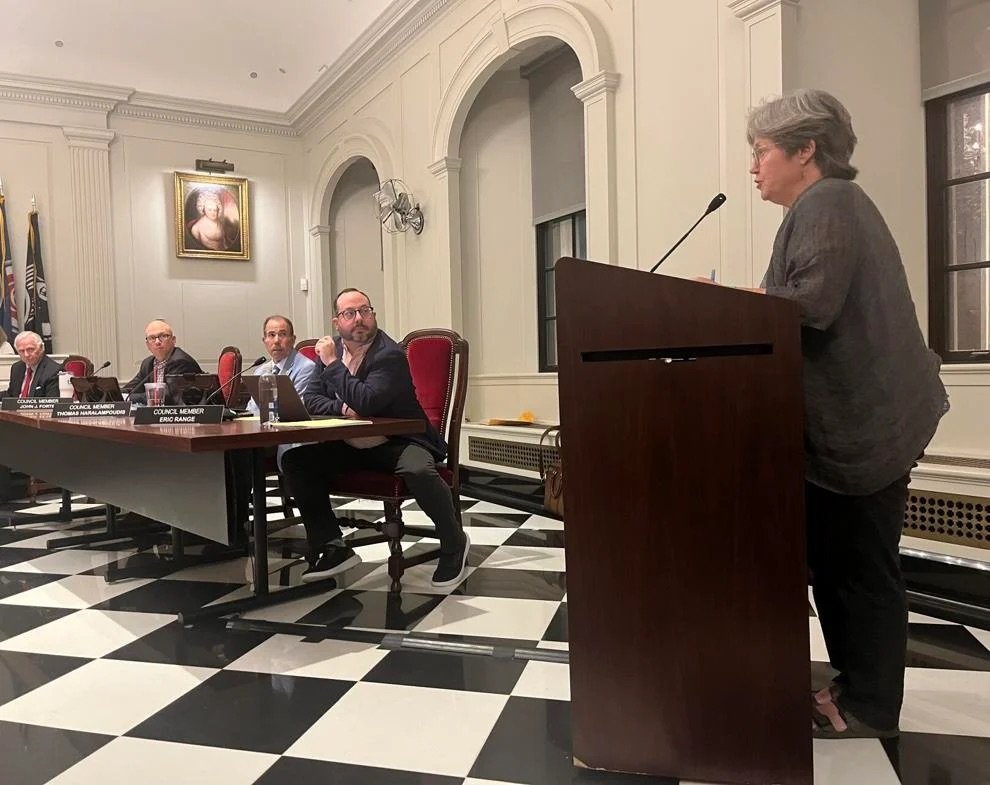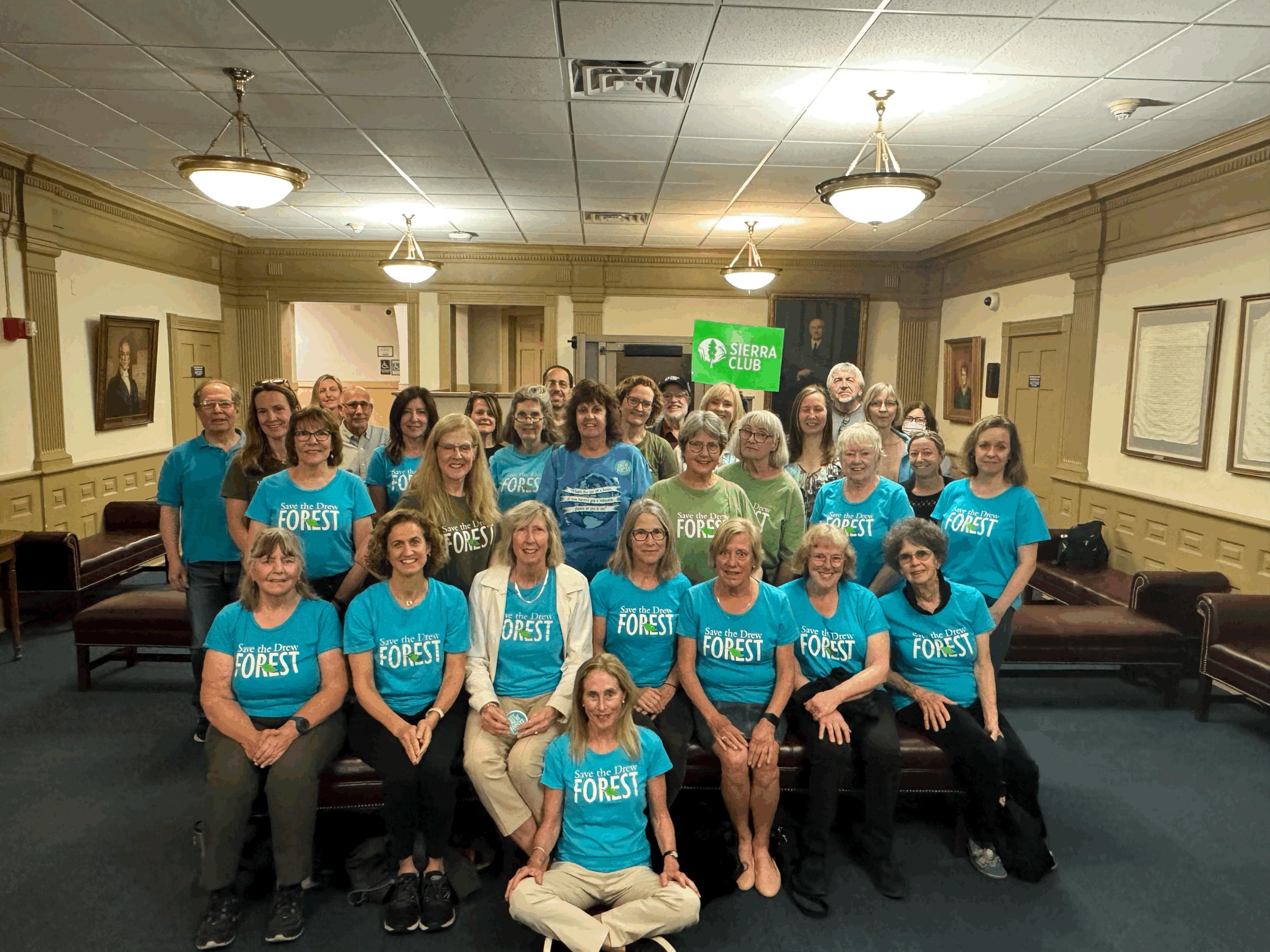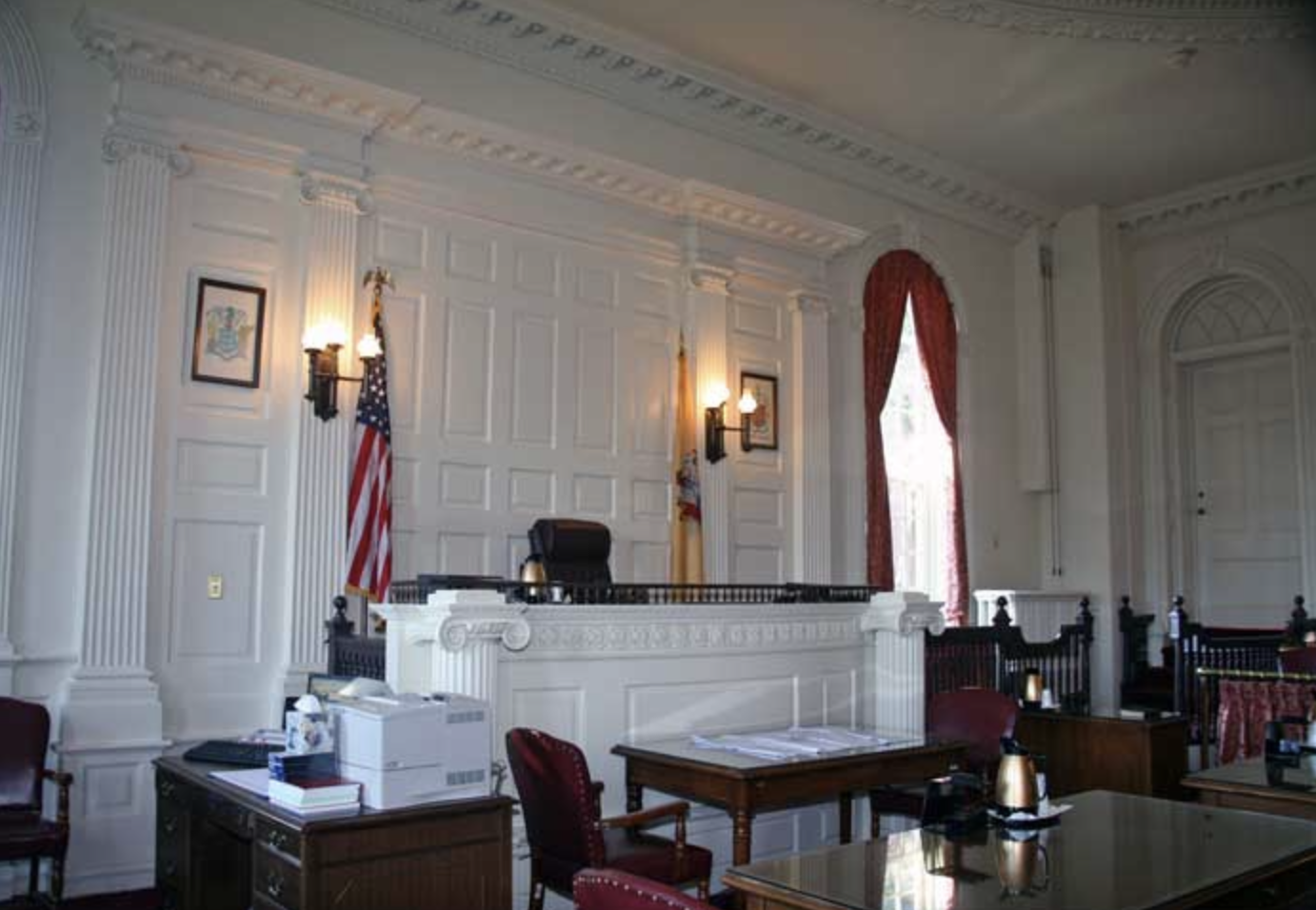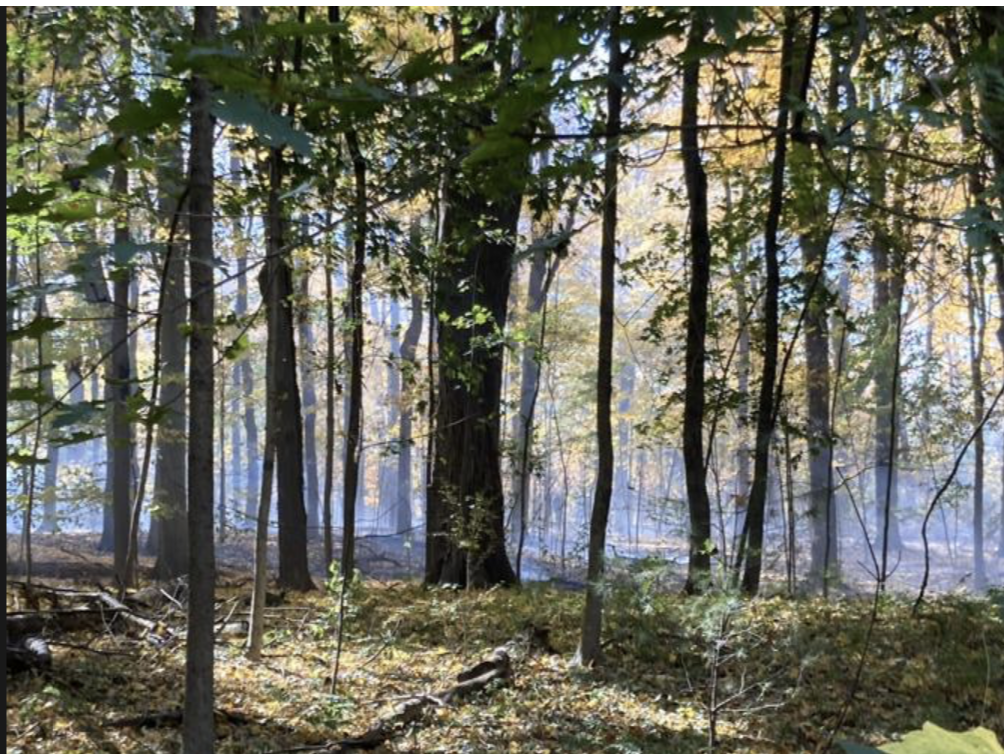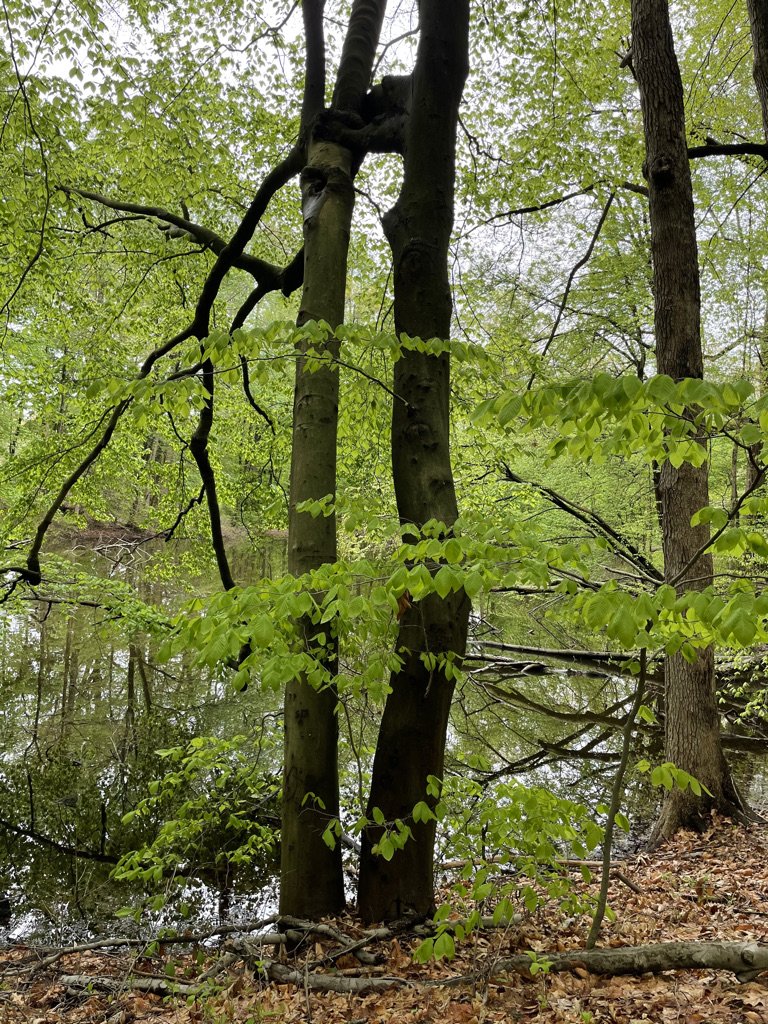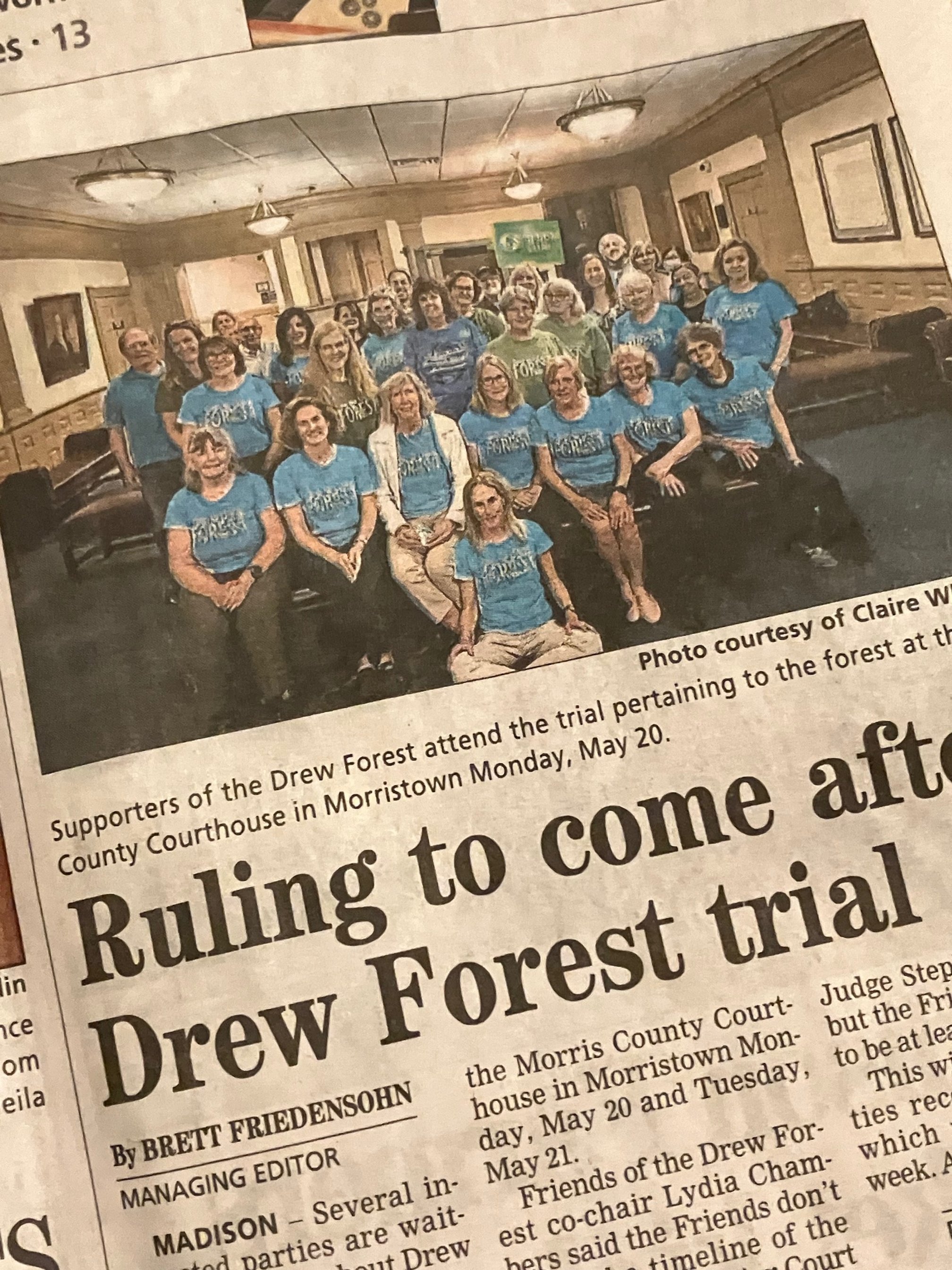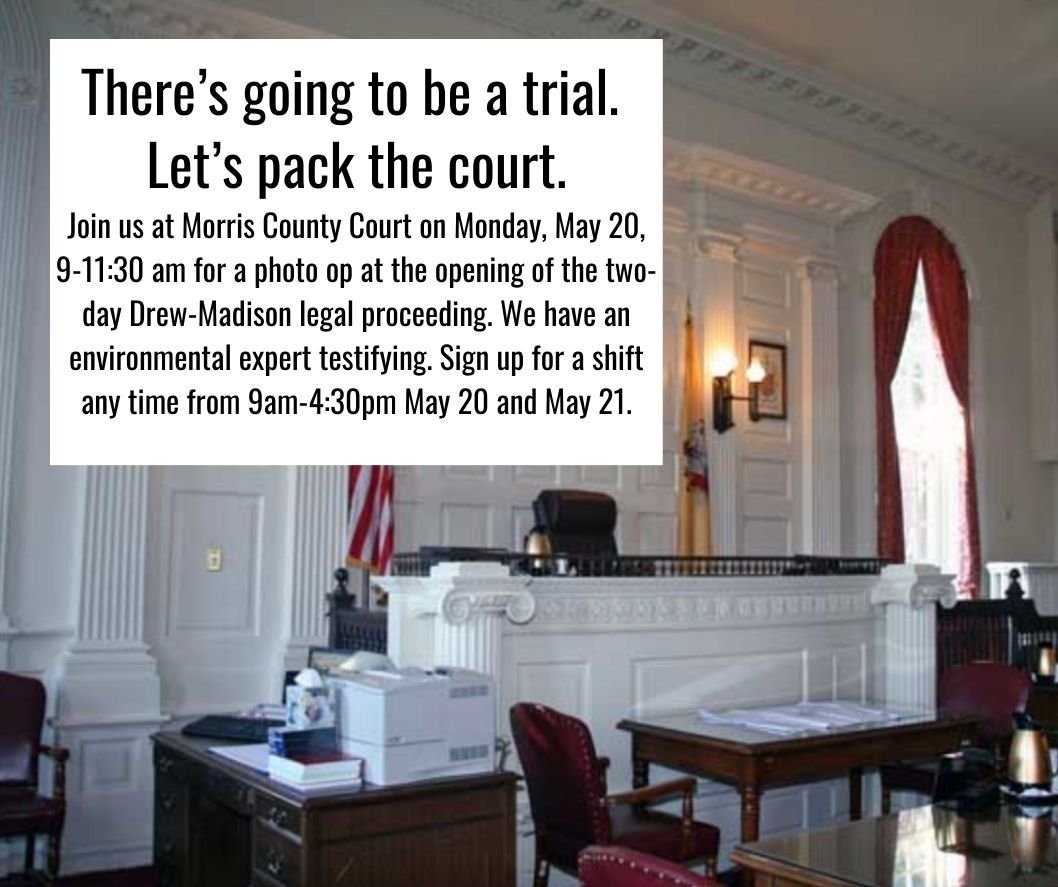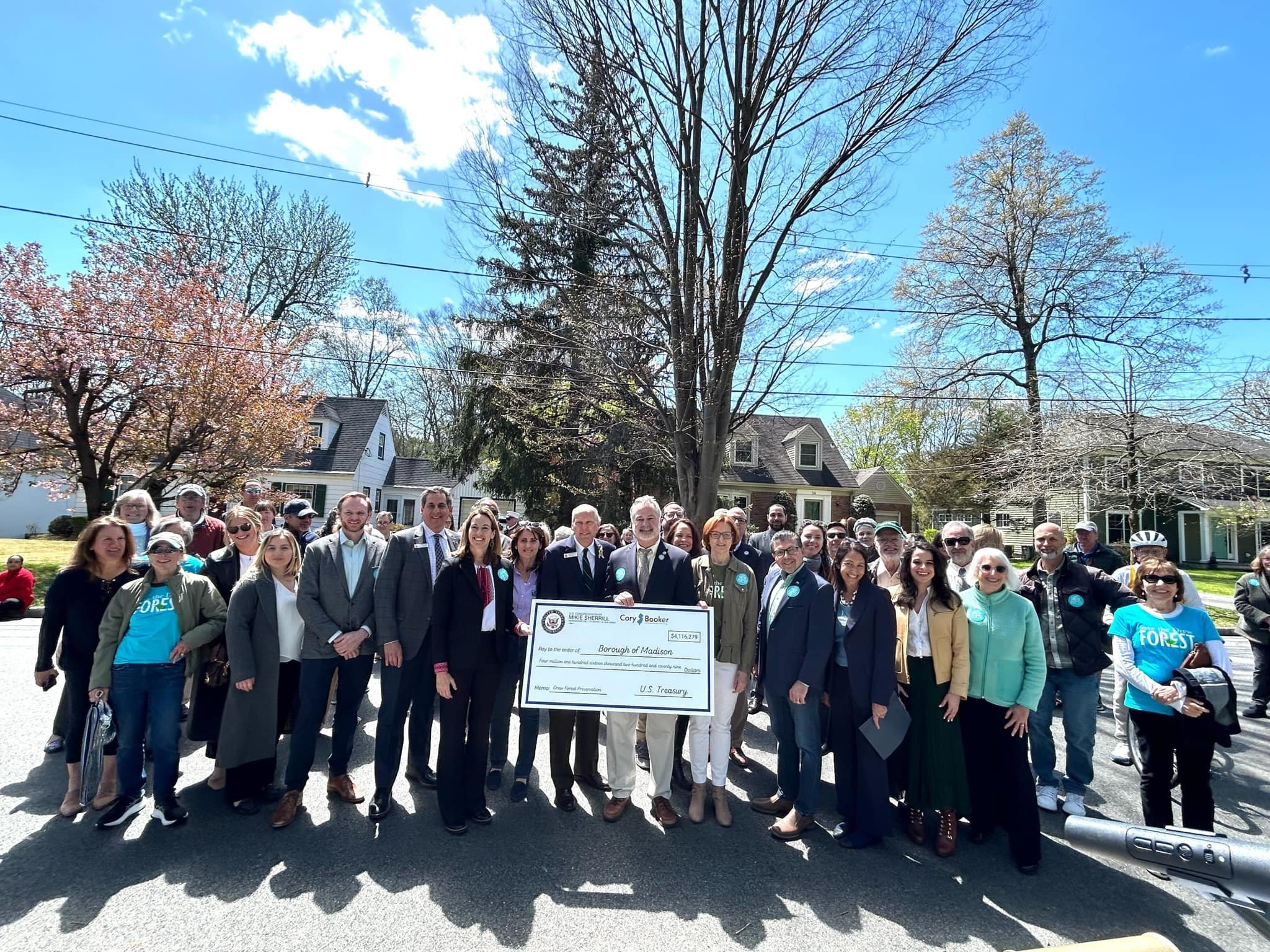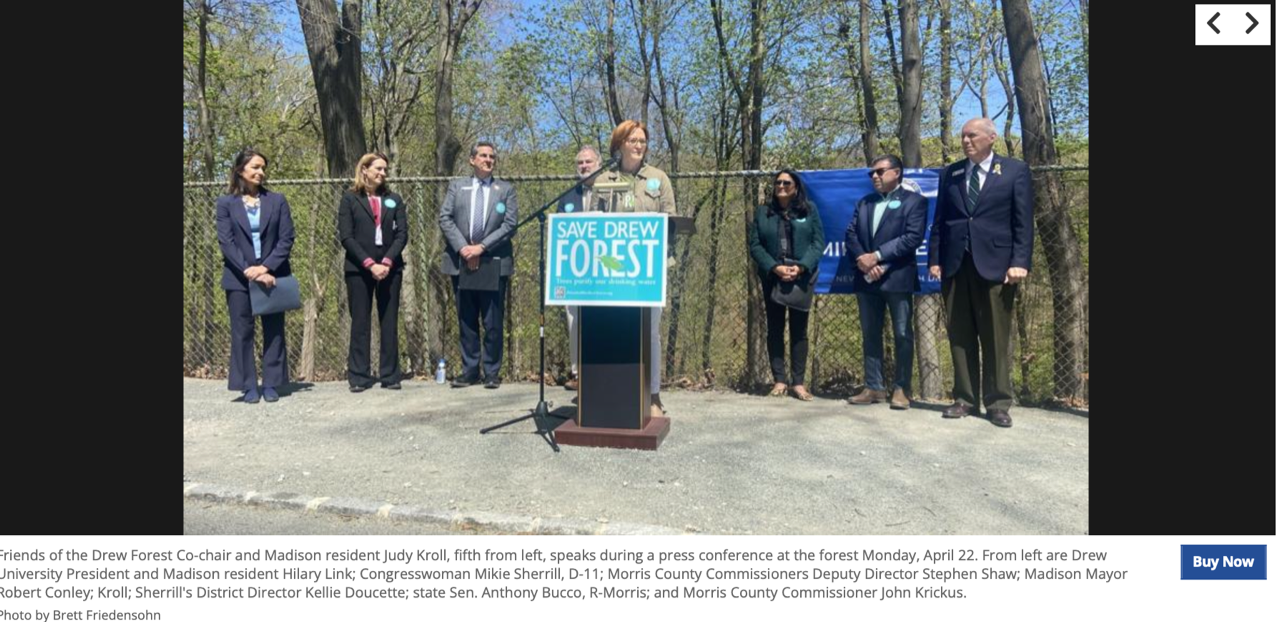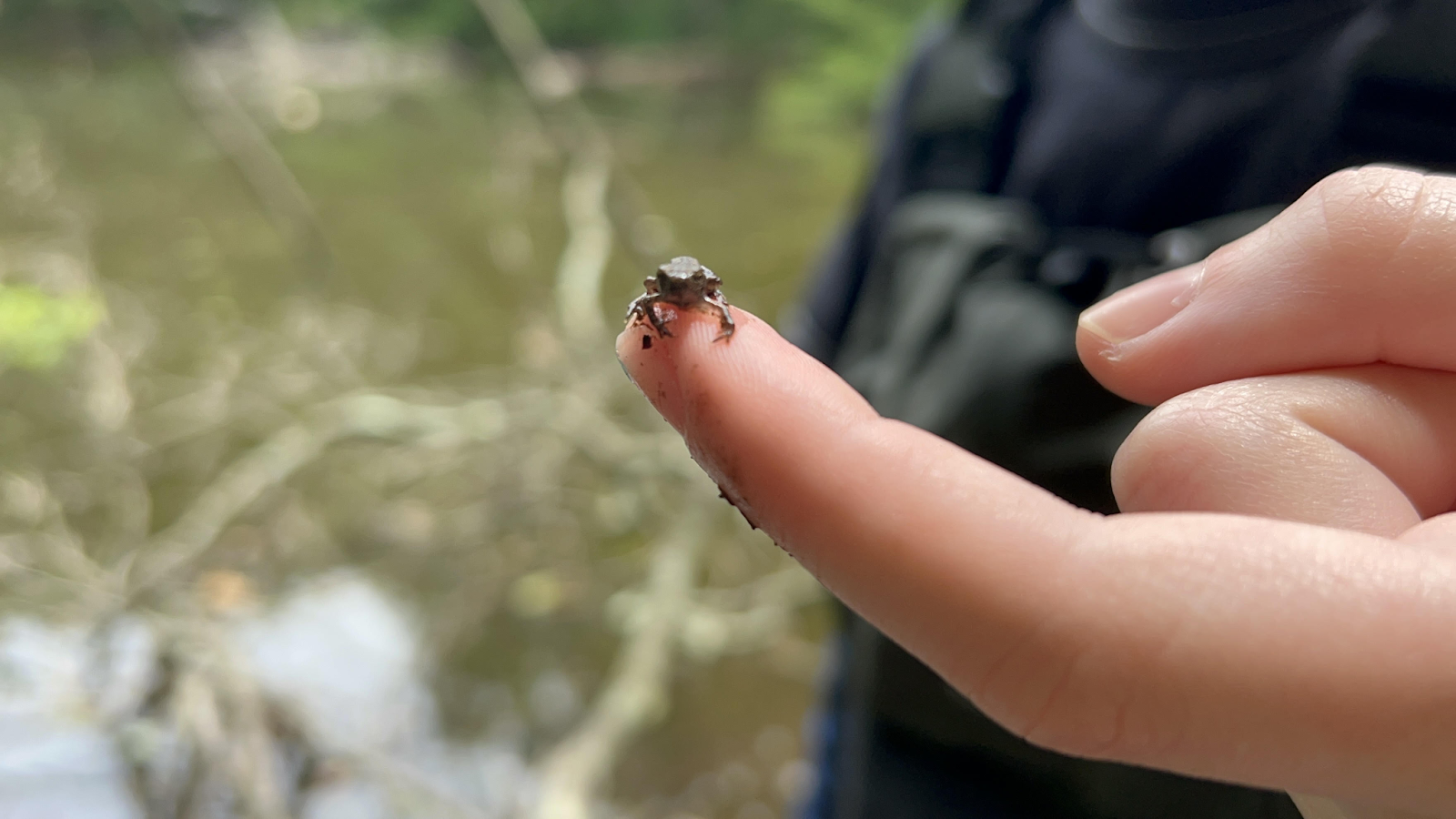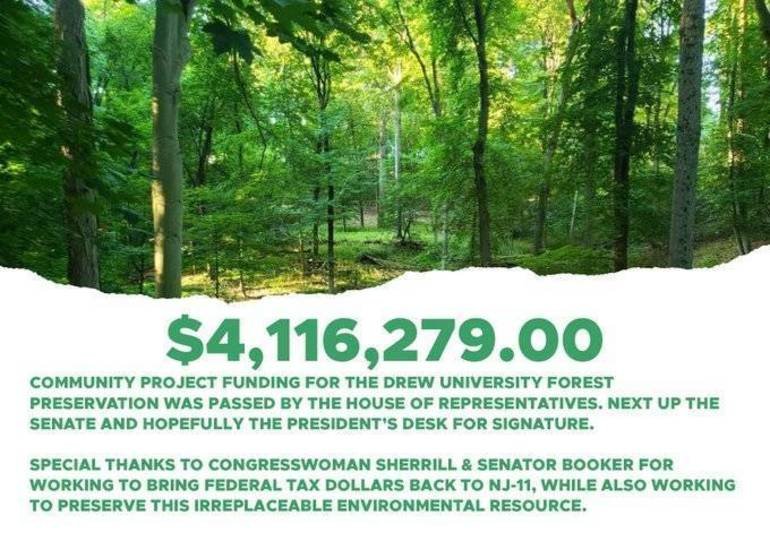Madison applies for Drew Forest purchase grant funding, calls on university to cooperate
Christine Hepburn of the Friends of the Drew Forest calls on Drew University to agree to a conservation sale with the borough of Madison to save the threatened forest at a Monday, June 12 Madison Borough Council meeting. Seated, from left, are Borough Administrator Ray Codey and Borough Councilmen John Forte, Tom Haralampoudis and Eric Range.
Photo by Alex Parker-Magyar
MADISON – The borough has submitted its application to the Morris County Open Space Fund for $10 million in grant funding to contribute to a purchase of the Drew Forest from Drew University.
Mayor Robert Conley and Madison community members hoping to preserve the forest from development continued to implore the university to come forward and partner in the effort at a Monday, June 12 Borough Council meeting.
The university has sought to have much of the forest rezoned for multi-family housing and sold to a developer to mitigate its financial troubles.
Conley said the $10 million funding request “represents a substantial support to the purchase price and permanent preservation of the forest. Receiving this grant will be a major step towards saving the forest, but we aren’t there yet.”
He noted borough officials presented a written offer to purchase the forest from the university when they met with members of the university’s Board of Trustees on March 28.
“Our grant request was based on this offer and as of Friday’s grant submission we have not heard back from Drew on this offer,” he said.
Conley said Drew University must first agree on a sale price and a subsequent purchase contract with Madison for the grant application to go forward.
“We certainly hope that Drew joins us ... in supporting the saving of the forest, going beyond the verbal commitment to save the forest with an agreement that ensures that Drew will forever be ‘The University in the Forest,’” he said.
University Response
Drew University President Tom Schwarz and Board of Trustees Chair Bill Landis responded to the comments in a joint statement Wednesday.
Their statement is as follows:
"Drew is, and always has been, willing to reach a resolution to preserve the forest, any inference otherwise is not supported by facts or history. We have never proposed to develop the forest, but Madison must value that land at a fair market value.
"For three months, we have been waiting for a response to our proposal that accomplishes everyone’s goals - it preserves the forest, it monetizes our unused lands, it does not burden current taxpayers, and it allows Drew to provide much-needed financial aid to our students. Madison has not responded to this win-win proposal, nor have they provided an avenue toward appraising Drew’s lands, which has led us to where the issue stands now.
"Three years ago, Drew advised Madison that we wanted to monetize portions of the campus that were not being utilized to help build our endowment for financial aid. Since that time, Drew has complied with all of Madison’s requests to move this effort forward. We hired consultants, performed surveys, and participated in numerous meetings. In total, Drew invested nearly $1 million at the request of Madison. Our goal has always been to work with Madison towards a quick resolution and to continue to be good neighbors. Now it is time for Madison to stop playing politics and meet Drew at the table, ready to make a deal."
‘Going Beyond The Verbal Commitment’
Back at Monday's council meeting, residents continued to speak out on the issue.
As numerous residents, Drew students and alumni and environmentalists have advocated for the preservation of the threatened forest for more than two years now, Conley turned to a new, non-human party to weigh in on the issue. He asked ChatGPT, the artificial intelligence “chatbot” that culls information from the web to form responses, to write an article on the Drew Forest.
Conley read aloud the lengthy, automated response from ChatGPT, which the chatbot titled “Preserving the Jewel.”
One of the many things that ChatGTP highlighted in its response was that the Drew Forest “fosters a sense of community, pride and connectivity, serving as a gathering place for events, and community celebration,” in addition to numerous environmental benefits.
Conley corrected that although the Drew Forest does not hold many celebrations it does host many nature-based programs. The main point behind sharing the ChatGPT essay was to show that even ChatGPT supports saving the forest.
During the second public comment portion of the council meeting, Hardwick Township resident and Save the Drew Forest member Christine Hepburn shared her thoughts on the recent developments with saving Drew Forest. A former Madison resident, Hepburn, a co-founder many years ago with Judy Kroll of “Madison Matters,” a local citizen’s land use group, lived for many years directly adjacent to the forest on Glenwild Road.
She began her comment by addressing the recent air conditions from the wildfires in Canada.
It was during one of the more particularly smokey days that Hepburn was walking through the Drew Forest. She said it was not until after coming out of the forest that she “started coughing and noticed the smoke.” There were a couple of people with her who shared a similar experience.
“Trees reduce air pollution, pollution that consists both of gaseous matter and also particulate matter. The fine dust, tiny particles, thinner than a piece of your hair that comes from car and other exhaust and from fire,” Hepburn said.
“Smoke from fire in fact contains particularly dangerous particles for the health of our lungs and our hearts.”
Hepburn then told the council that she found that maple trees have been shown to reduce three pounds of air pollution in one year.
“Just one acre of trees in New Jersey has been shown to remove on average 76 pounds of air pollution per year,” Hepburn said.
Hepburn addressed Drew in the final minute of her comment.
“I’d like to talk to the powers that be at Drew University. Property owners do not get zoning changes they want in order to maximize the price of selling their property,” Hepburn said, referencing the university’s unsuccessful attempt to have the property rezoned for housing.
“People at Drew, I hope you’ll think hard about that fact when considering the offer to make millions and save your forest.”
Hepburn’s challenge was followed by a thank-you to the mayor and council members for advocating for a more effective, “win-win” solution to save Drew Forest through a conservation sale. She pointed to a similar effort that bore fruit earlier this month in Illinois, where Evansville University agreed to sell 42 acres of forested campus land to its home city rather than to a developer.
“The university president said, ‘we wanted to make sure that what we’re doing is right for the city of Evansville,’” Hepburn said. “We call on Drew – its president and all of the trustees – to respond to the purchase offer from the borough with the same sense of community and generational stewardship as the president of Evansville University.”
Editor's note: This story was updated Wednesday morning, June 14, to include a statement from Drew University.

